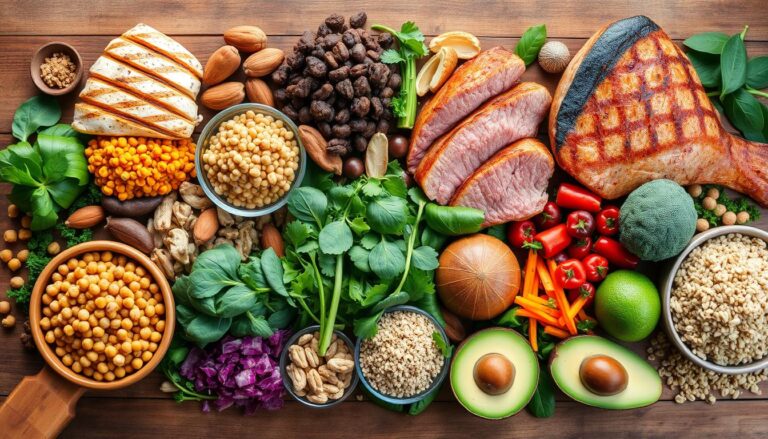In today’s health-conscious society, determining the most effective weight loss strategies can be overwhelming. With numerous approaches and conflicting information, it can be difficult to discern which methods yield sustainable weight loss results. This article aims to address common misconceptions and provide clear, science-backed insights into successful weight management. As we delve deeper, you’ll discover practical tips rooted in understanding key principles to achieve your weight loss goals.
Whether your preference is to work out at home or at the gym, both settings offer unique advantages. For instance, convenience and cost-effectiveness of home workouts can contrast with the variety of equipment and professional guidance available at gyms. Additionally, the importance of understanding nutrition cannot be overstated. Managing your caloric intake and estimating your maintenance calories are crucial steps towards achieving long-term weight loss results. For more information on working out settings, you can explore this detailed comparison.
Key Takeaways
- Identify the most effective weight loss strategies for your needs.
- Understand the principles behind sustainable weight loss results.
- Weigh the pros and cons of working out at home versus at a gym.
- Learn the importance of caloric intake and maintenance calories.
- Explore practical tips for starting a customized fitness routine.
Understanding the Basics of Weight Loss
Grasping the fundamentals of weight loss is crucial for anyone looking to shed pounds effectively. To do so, we must delve into how our bodies burn calories and how metabolism plays a vital role in this process. This section will unpack these mechanisms and the scientific concept of energy balance.
The Science Behind Weight Loss
Weight loss occurs when the body uses more calories than it consumes, creating a caloric deficit. This involves the process of metabolism, which includes all the chemical reactions in our bodies that convert food into energy. By understanding these processes, individuals can work toward an effective strategy for fat loss.
The Role of Calories and Metabolism
Calories are units of energy that our bodies obtain from food. These calories are burnt through physical activity and basic bodily functions, collectively referred to as metabolism. An essential concept here is energy balance, which is the equilibrium between calories consumed and calories expended. Maintaining a negative energy balance is key for effective weight loss.
Several factors influence one’s metabolic rate, including age, muscle mass, and genetic predisposition. By managing and understanding these factors, individuals can optimize their approach to achieving and sustaining fat loss. Consider the following table illustrating factors affecting metabolism:
| Factors | Impact on Metabolism |
|---|---|
| Age | Metabolism slows down as we age |
| Muscle Mass | Higher muscle mass boosts metabolic rate |
| Genetics | Inherited genes can influence metabolic efficiency |
By focusing on these elements, individuals can better manage their caloric intake and expenditure, leading to a more predictable and successful weight loss journey.
Healthy Diet for Effective Weight Loss
Adopting a healthy diet is crucial for achieving effective weight loss. The key is to focus on nutrient-dense foods that provide essential nutrients without excessive calories. Let’s delve into the components of a successful weight loss diet and understand why a balanced diet is so important.
Incorporating Nutrient-Dense Foods
Nutrient-dense foods play a significant role in a healthy diet. These foods are rich in vitamins, minerals, and other nutrients but relatively low in calories. Examples include whole grains, lean proteins, healthy fats, and a wide variety of fruits and vegetables. By including these foods in your meals, you can ensure that your body gets the necessary nutrients to function optimally while supporting your weight loss efforts.
Importance of a Balanced Diet
A balanced diet is essential for maintaining overall health and achieving weight loss goals. It involves consuming the right proportions of different food groups to provide the body with a variety of nutrients. A balanced diet helps in managing weight by preventing nutrient deficiencies and promoting satiety, which can reduce overeating. Eating a well-rounded diet that includes carbohydrates, proteins, fats, vitamins, and minerals can also enhance metabolism and support long-term weight loss success.
Exercise Routines to Boost Weight Loss
Incorporating effective exercise routines is essential for anyone looking to achieve long-term weight loss. Various fat burning exercises can significantly impact your overall health and fitness, promoting a more active lifestyle. Engaging in consistent physical activity not only helps in shedding pounds but also builds muscle mass, which is crucial for maintaining a healthy metabolism.
One of the most comprehensive approaches to weight loss involves a mix of cardio, strength training, and flexibility exercises. Here are a few examples:
- Cardio Workouts: Running, cycling, and swimming are excellent for elevating the heart rate and burning calories.
- Strength Training: Incorporate weight lifting or resistance band exercises to build muscle, which can increase your basal metabolic rate.
- Flexibility Exercises: Yoga and stretching activities improve flexibility and can help prevent injuries while promoting relaxation.
Combining these different types of workouts can enhance your overall effectiveness in achieving weight loss. To maximize benefits, it’s crucial to stay consistent with your weight loss exercises and follow a structured plan. Personalized coaching programs can provide valuable support, offering tailored workout plans, nutritional guidance, and consistent motivation. Abdullaah Yaseen provides an excellent example of such structured approaches, emphasizing balanced nutrition and consistent exercise routines through his coaching programs.
Here’s a comparison of different fat burning exercises and their benefits:
| Exercise | Calories Burned (per hour) | Additional Benefits |
|---|---|---|
| Running | 600-800 | Improves cardiovascular health, strengthens legs |
| Cycling | 400-700 | Enhances lower body strength, low impact on joints |
| Swimming | 500-700 | Full-body workout, increases endurance |
| Weight Lifting | 200-400 | Builds muscle mass, boosts metabolism |
| Yoga | 200-400 | Increases flexibility, reduces stress |
Overall, integrating a variety of weight loss exercises into your schedule can offer a comprehensive approach to achieving your fitness goals. By combining different types of workouts and maintaining consistency, you can effectively boost your weight loss efforts and improve your overall well-being.
Calorie Deficit: The Key to Weight Loss
Understanding how to achieve and maintain a calorie deficit is crucial for effective weight loss planning. By calculating your specific calorie needs and implementing strategies to stay within this limit, you can successfully shed unwanted weight.
How to Calculate Your Calorie Needs
To create a calorie deficit, you first need to determine your daily calorie requirements. This can be done by considering factors such as age, sex, weight, height, and physical activity level. The most commonly used formula is the Harris-Benedict Equation, which helps to estimate your Basal Metabolic Rate (BMR) and daily calorie needs:
| Factor | Description | Impact on Caloric Needs |
|---|---|---|
| Age | Older individuals generally require fewer calories | Decreases |
| Sex | Men typically have higher calorie needs than women | Varies |
| Weight | Heavier individuals need more calories to maintain weight | Increases |
| Height | Taller people usually have higher calorie requirements | Increases |
| Physical Activity | More active individuals need more calories | Increases |
By calculating your total calorie needs, you can set a target for calorie intake that supports a calorie deficit, promoting weight loss over time.
Strategies to Maintain a Calorie Deficit
Once you have established your calorie needs, consistently maintaining a calorie deficit is essential. Here are some effective strategies:
- Tracking calories: Utilize apps or food diaries to monitor your daily intake, ensuring you don’t exceed your target.
- Meal planning: Plan and prepare meals in advance to control portion sizes and avoid high-calorie foods.
- Mindful eating: Focus on your eating habits, such as eating slowly and paying attention to hunger cues, to avoid overeating.
- Weight loss tips: Follow practical advice, like choosing low-calorie foods and staying hydrated, to help maintain your calorie deficit.
By diligently tracking calories and employing these weight loss tips, you can effectively achieve and sustain a calorie deficit, paving the way for successful weight loss planning.
Portion Control: How It Impacts Your Weight
When it comes to effective weight management, portion control plays a pivotal role. Often, we are unaware of how much we’re actually consuming, leading to inadvertent overeating. By understanding appropriate serving sizes, one can significantly cut down on excess calorie intake without feeling deprived.
Implementing mindful eating habits is essential for long-term success. This means paying close attention to what, when, and how much we eat. It encourages individuals to savor their food, leading to better digestion and, ultimately, a more satisfying meal experience.
One common strategy is to use smaller plates and bowls, which can naturally limit serving sizes. Here are some practical examples:
- Use a salad plate for main courses.
- Divide snacks into individual portion bags.
- Avoid eating directly from large packages.
Eating out can be particularly challenging. Restaurants often serve portions that exceed daily recommended serving sizes. To navigate this, consider sharing entrees or immediately boxing half of the meal to take home. This approach not only promotes portion control but also ensures a meal for later.
Moreover, understanding the psychological aspects of portion control is crucial. It’s important to recognize hunger and fullness cues, which can be sharpened through mindful eating. By being present during meals and avoiding distractions like television or smartphones, one can enjoy food more holistically and make healthier choices.
An informative table can illustrate the benefits of portion control versus standard serving sizes:
| Food Item | Standard Serving Size | Portion Control Benefit |
|---|---|---|
| Pasta | 2 cups cooked | Save 200 calories by eating 1 cup |
| Chicken Breast | 8 oz cooked | Save 150 calories by eating 4 oz |
| Ice Cream | 1 cup | Save 170 calories by eating ½ cup |
In conclusion, by embracing portion control, we can better manage our weight without resorting to extreme diets. Through mindful eating and properly gauging serving sizes, achieving a balanced and healthy lifestyle becomes manageable and sustainable.
What is the most effective way to lose weight?
Achieving the most effective weight loss requires a comprehensive approach that combines diet and exercise along with a commitment to consistent weight management. It’s not just about shedding pounds quickly but maintaining a healthy lifestyle that fosters long-term results.
Combining Diet and Exercise
The synergy between a balanced diet and regular physical activity is undeniable in a successful weight loss journey. To maximize results, one must focus on incorporating nutrient-dense foods while maintaining an active exercise regimen. For instance, eating a balanced diet rich in fruits, vegetables, whole grains, and lean proteins supports overall health and fuels exercise performance.
Engaging in regular physical activity, such as cardiovascular exercises and strength training, helps to burn calories and build muscle. The Mayo Clinic suggests making gradual changes and setting realistic goals which is crucial for sustainable weight management. Enjoying healthy foods and staying active are essential steps in this journey.
Staying Consistent and Patient
One of the most significant challenges in weight loss is staying consistent and patient. Many individuals expect rapid results, but the key lies in steady progress and sustainable habits. By focusing on a disciplined yet flexible approach, you can maintain continuous improvement without feeling overwhelmed. Rediscovering your motivation daily and celebrating small victories can keep you inspired throughout your weight loss journey.
A successful weight management plan also includes monitoring progress and being mindful of habits that may hinder success. By analyzing your routine, making necessary adjustments, and seeking support when needed, you can maintain the motivation required for long-term health benefits. Incorporating these strategies will undoubtedly provide the most effective weight loss results, promoting a healthier and happier lifestyle.
Metabolism Boosters: Myths and Facts
Metabolism boosters are frequently promoted as quick-fix weight loss solutions, but it’s essential to differentiate between myths and facts. Let’s dive into the efficacy of various metabolism-enhancing supplements and explore natural ways to boost your metabolic rate.
Effective Supplements
Many metabolism-enhancing supplements claim to accelerate the metabolic rate, but their actual efficacy can vary. Ingredients like green tea extract and caffeine are often highlighted for their potential benefits. While some studies suggest that these supplements might provide a slight metabolism boost, they are not magic pills. It’s crucial to understand that supplements should complement a healthy lifestyle, not replace it.
“Green tea extract has been shown to slightly increase metabolic rate, but sustained weight loss ultimately requires consistent diet and exercise,” says the American Journal of Clinical Nutrition.
| Supplement | Potential Benefit | Scientific Support |
|---|---|---|
| Green Tea Extract | Increases metabolic rate | Moderate |
| Caffeine | Boosts metabolism temporarily | Strong |
| Carnitine | Improves fat oxidation | Limited |
| Capsaicin | Enhances calorie burning | Moderate |
Natural Ways to Boost Metabolism
Aside from supplements, there are numerous natural methods to enhance your metabolism. Integrating regular exercise, particularly strength training, can effectively boost your metabolic rate. Eating smaller, more frequent meals and incorporating protein-rich foods can also contribute to a higher metabolic rate. Additionally, ensuring adequate hydration plays a crucial role in maintaining a healthy natural metabolism.
- Exercise Regularly: Include cardio and strength training in your routine for optimal results.
- Stay Hydrated: Drinking water can temporarily speed up your metabolism.
- Eat Protein: Foods rich in protein can increase your metabolic rate for a few hours.
- Get Enough Sleep: Lack of sleep can negatively impact your metabolism.
Being well-informed is essential in navigating the complex landscape of metabolism boosters. Always prioritize evidence-based approaches and consult healthcare professionals before incorporating any new supplements into your routine.
Lifestyle Changes for Sustainable Weight Loss
Achieving sustainable weight loss requires adopting lifestyle changes that promote long-term benefits. One of the critical aspects is making healthy habits a core part of your daily routine. These habits include a balanced diet, consistent exercise, and effective stress management techniques.

First, setting achievable weight loss goals tailored to your personal needs is essential. Small, incremental changes in diet and physical activity can yield significant results over time. A supportive community or network can also play a crucial role in helping you stay committed to your journey.
Second, incorporating healthy habits into your routine is vital. These may include prioritizing quality sleep, staying hydrated, and adhering to a nutritious diet rich in whole foods. Such changes ensure that weight maintenance becomes a natural part of your lifestyle.
Third, stress management cannot be overlooked. High levels of stress can lead to unhealthy eating patterns and weight gain. Techniques such as meditation, yoga, and deep breathing exercises can help mitigate stress’s impact on your weight.
Lastly, surrounding yourself with a supportive environment can significantly enhance your ability to stick to these changes. Family, friends, or fitness groups often provide the encouragement needed to maintain healthy habits. Combining these efforts with a comprehensive approach to sustainable weight loss ensures long-term success in achieving your goals.
| Key Habit | Benefits |
|---|---|
| Balanced Diet | Provides essential nutrients and aids in weight maintenance |
| Regular Exercise | Boosts metabolism and promotes weight loss |
| Stress Management | Reduces unhealthy eating behaviors and supports mental health |
| Adequate Sleep | Regulates hunger hormones and enhances overall well-being |
By embracing these lifestyle changes, you can set yourself on a path toward successful weight maintenance and enjoy the lasting health benefits of sustained weight loss.
Conclusion
In this effective weight loss summary, we’ve explored a comprehensive approach that combines essential elements such as a healthy diet, regular exercise, and impactful lifestyle changes. Understanding the science behind weight loss, particularly the role of calories and metabolism, forms the foundation of any effective weight loss strategy. It’s clear that fostering a calorie deficit and utilizing portion control are vital steps in achieving your goals.
Incorporating a balanced diet that includes nutrient-dense foods and remaining consistent with your exercise routines can significantly enhance your overall results. Notably, the versatile benefits of activities like cable workouts not only improve strength but also stabilize posture, as detailed in sources such as this guide on cable workouts for a strong.
Boosting metabolism through both supplements and natural methods can also support your journey. The crux of the weight loss takeaways is that enduring success requires ongoing commitment to lifestyle changes that promote sustainability. Embracing a multifaceted approach, as outlined in this weight loss strategies conclusion, empowers you to pursue your weight loss objectives with renewed confidence and determination. Remember, consistency and patience are your greatest allies in this transformative journey.
FAQ
What are some effective weight loss strategies?
Effective weight loss strategies include maintaining a calorie deficit, incorporating nutrient-dense foods in your diet, engaging in regular physical activity, and making sustainable lifestyle changes. Combining different methods can help achieve long-term weight loss results.
How does metabolism impact weight loss?
Metabolism affects how quickly your body burns calories. A higher metabolic rate allows you to burn more calories at rest and during activity, contributing to weight loss. Factors such as age, sex, genetics, and muscle mass can influence your metabolism.
What is the role of a healthy diet in weight loss?
A healthy diet is crucial for weight loss as it provides the necessary nutrients while supporting a calorie deficit. Incorporating nutrient-dense foods like whole grains, lean proteins, and a variety of fruits and vegetables can help manage weight effectively and promote overall health.
Can exercise routines boost weight loss?
Yes, exercise routines can significantly boost weight loss by increasing calorie expenditure, improving muscle mass, and enhancing overall health. Combining cardio exercises with strength training is often recommended to maximize fat loss and improve fitness levels.
How can I calculate my calorie needs for weight loss?
To calculate your calorie needs, you need to consider factors such as age, sex, weight, height, and physical activity level. There are various online calculators and formulas like the Harris-Benedict Equation that can help estimate your daily calorie requirements to maintain a calorie deficit for weight loss.
What are some strategies to maintain a calorie deficit?
Maintaining a calorie deficit can be achieved through food tracking, meal planning, portion control, and incorporating low-calorie, nutrient-dense foods. Mindful eating practices and regular physical activity can also support a sustained calorie deficit.
How does portion control impact weight loss?
Portion control helps manage calorie intake without resorting to extreme diets. By controlling serving sizes and being mindful of what and how much you eat, you can create a calorie deficit and support weight loss efforts. Techniques to improve portion control include using smaller plates, measuring portions, and avoiding distractions while eating.
What is the most effective way to lose weight?
The most effective way to lose weight typically involves a combination of a balanced diet, regular exercise, and consistency. Incorporating various weight loss strategies, staying patient, and making sustainable lifestyle changes are key to achieving long-term weight loss success.
Are there any metabolism boosters that work?
While some metabolism-enhancing supplements claim to boost metabolic rate, their effectiveness is often overstated. Natural ways to boost metabolism include exercising regularly, consuming protein-rich foods, staying hydrated, and ensuring adequate sleep. These methods are more reliable and healthier than relying on supplements.
What lifestyle changes can promote sustainable weight loss?
Sustainable weight loss relies on adopting healthy habits such as optimizing sleep, managing stress, staying active, and seeking community support. These lifestyle changes help maintain a healthy weight in the long run and improve overall well-being. Incorporating these habits into daily routines can lead to lasting weight management.







